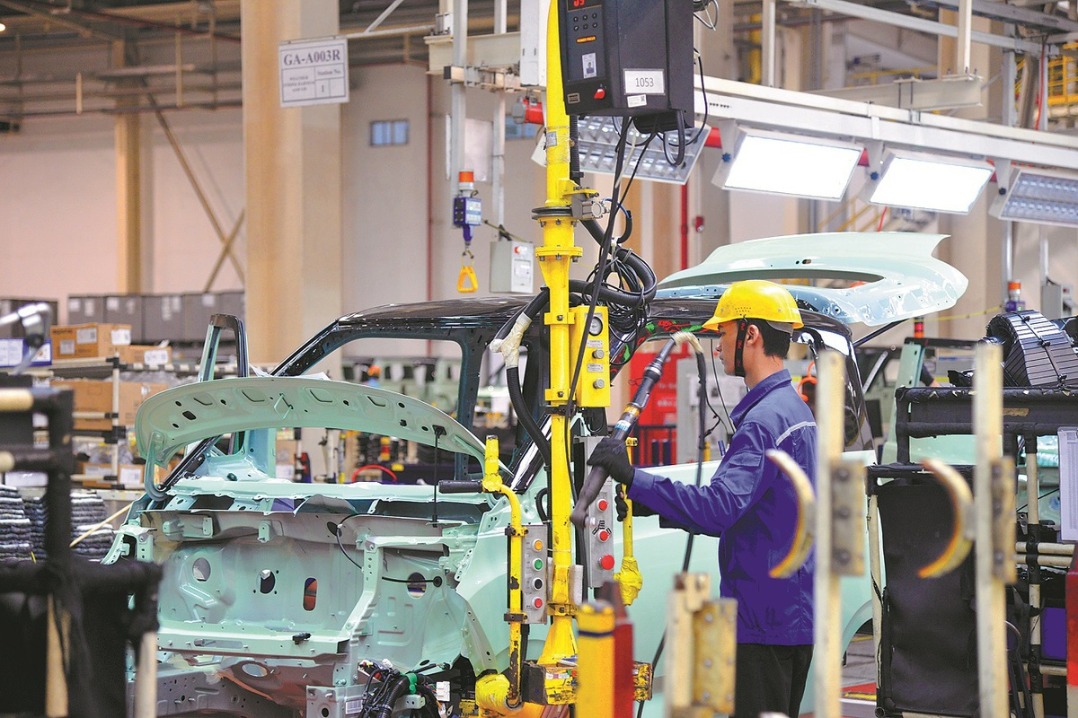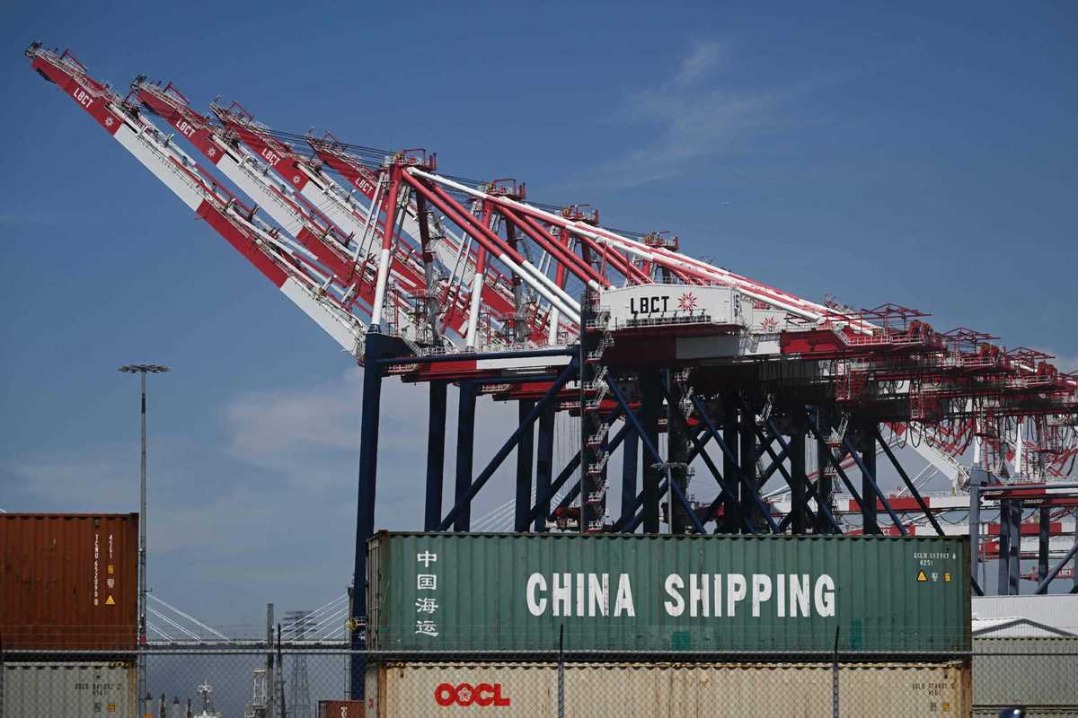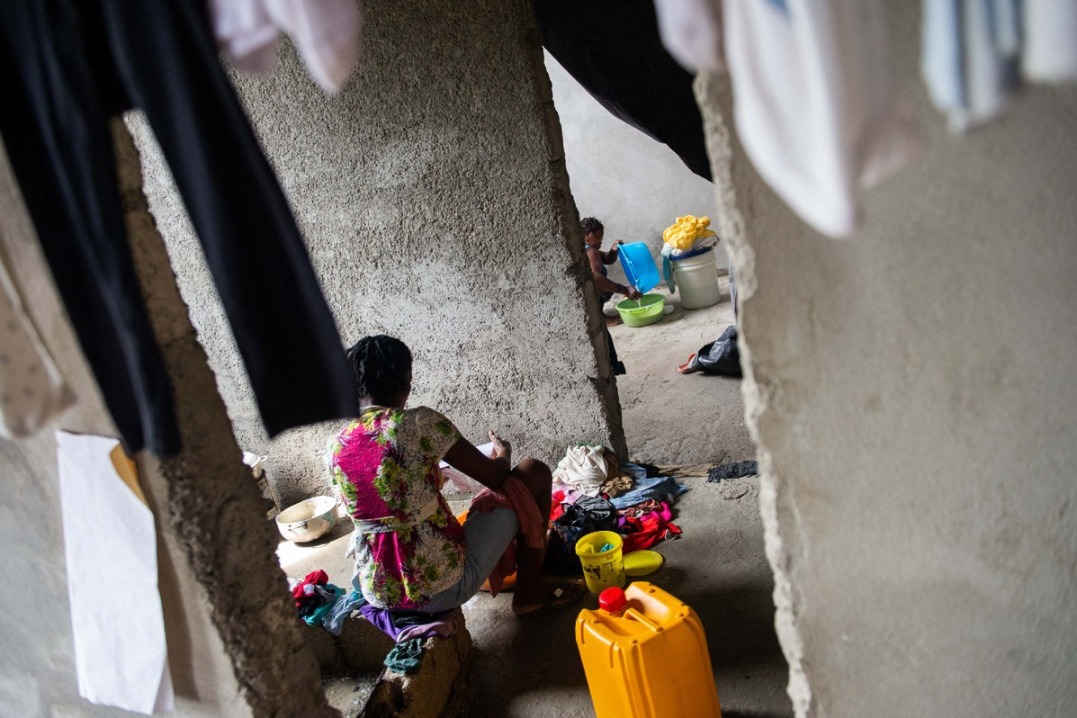Chinese firm boosting Nairobi River project

George Nyakundi, a bus driver in Kenya's capital Nairobi, spent almost 10 years living along the banks of the Nairobi River in Kamukunji slum — until devastating floods in April last year forced him to abandon his home.
Despite repeated warnings from government officials about the dangers of settling near the river, Nyakundi said many residents chose to stay because of the low rent.
"We all knew that living in the area was not safe because of persistent insecurity, poor sanitation and lack of basic infrastructure, but none of us expected the floods that came," Nyakundi said.
"Our houses were not swept away, but we lost a lot of property as the floodwaters stayed inside for almost a week."
Now, relief may be on the horizon for riverbank residents like Nyakundi. The Kenyan government has stepped up reclamation efforts to restore the Nairobi River and improve the city's broader environment.
Joseph Muracia, chief executive of the Nairobi Rivers Commission, said the long-running reclamation efforts recently received a boost through a $388 million partnership with Chinese company Energy China. The project aims to not only rehabilitate the Nairobi River but also build 50,000 affordable houses in the reclaimed areas for slum dwellers like Nyakundi.
It also includes the construction of a 60-kilometer sewer line, wastewater treatment plants, protection of upstream water sources, river dredging, stormwater management, solid waste treatment, landscaping, and the beautification of the river's surroundings, Muracia said.
Launched last month by President William Ruto, the initiative will also facilitate the resettlement of flood victims affected by years of encroachment along the river.
Muracia said the project will expand to four counties surrounding the capital. It seeks to revitalize Nairobi's rivers into vibrant urban waterfronts, integrating social housing projects, pedestrian walkways, cycle lanes, a new trunk sewer line, pedestrian bridges, and flower-lined riverbanks.
Through the partnership with Energy China, he said, they are looking forward to employing the latest technology to ensure the river reclamation is not only effective but also sustainable.
Local workforce
Li Cheng, a project manager at Energy China, said the river reclamation effort will incorporate cutting-edge technology and rely heavily on local labor — especially from communities living along the river basin.
"We will leverage advanced technologies and mobilize a local workforce to accelerate the river's restoration," Li told Xinhua News Agency. "The rehabilitation of the Nairobi River is expected to take two years, with riparian communities set to benefit from substantial environmental improvements upon completion."
Muracia said the project is expected to create nearly 20,000 jobs while reversing decades of environmental degradation and pollution, which mainly affects riverbank residents through communicable diseases and other health complications.
"Public participation is instrumental in implementing the project," he said. "Locals will earn a living from it and we want to entice the public to own the protection of the river by participating in river cleanups, river walks, tree planting and educational campaigns long after the reclamation is done."


































